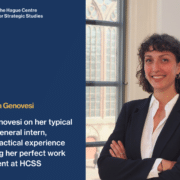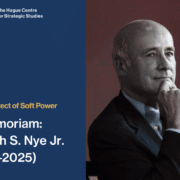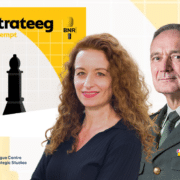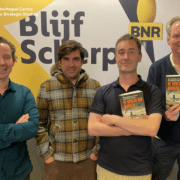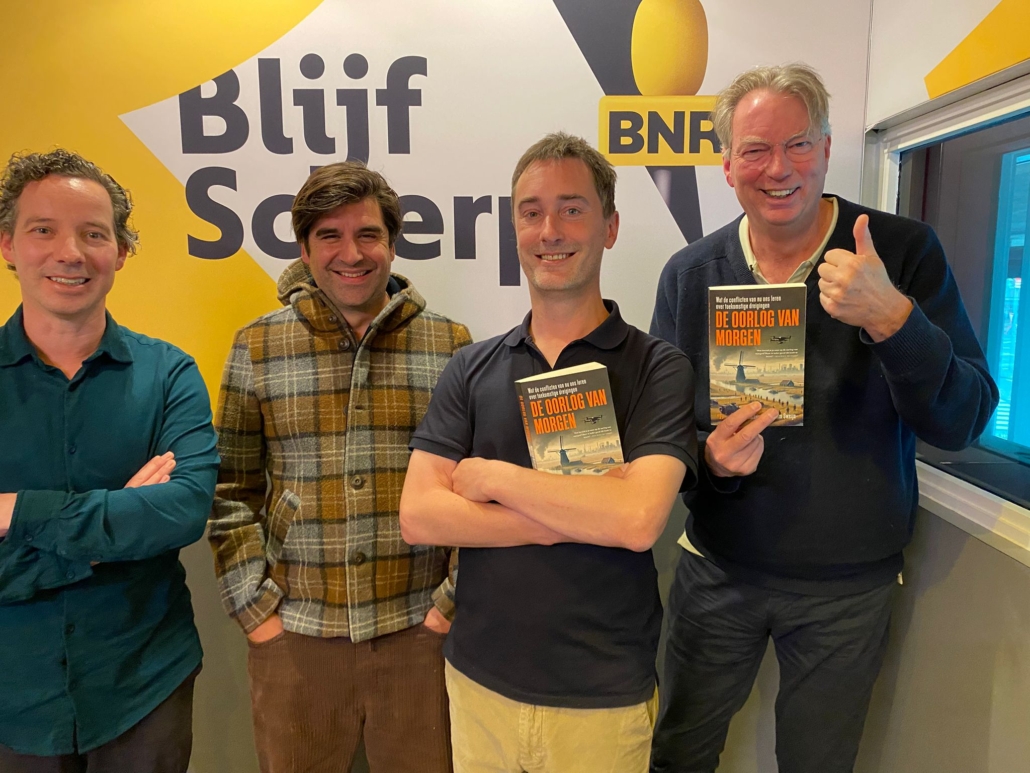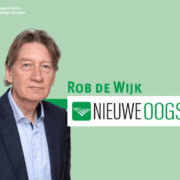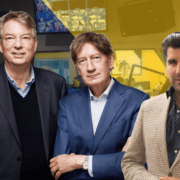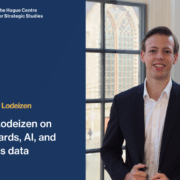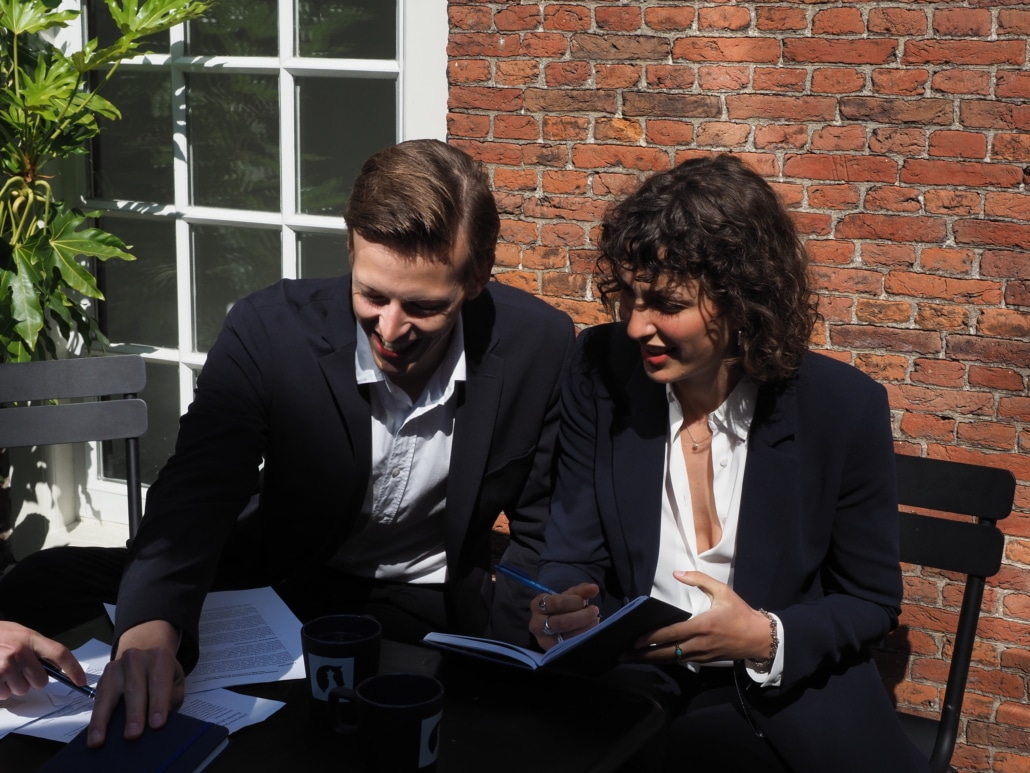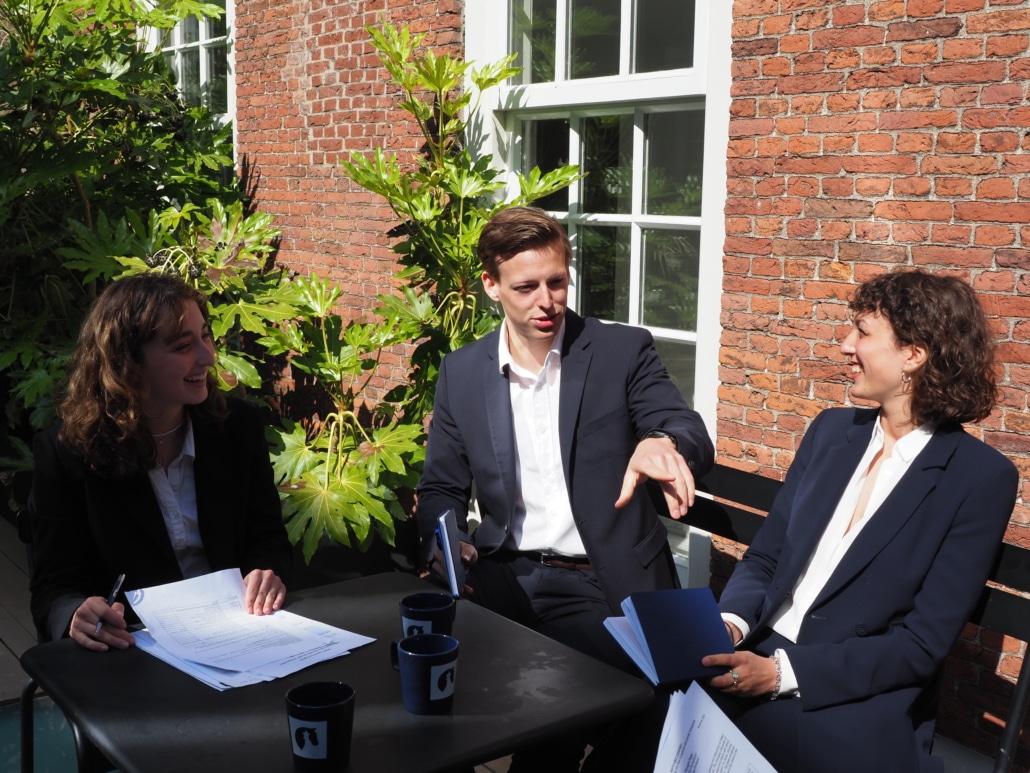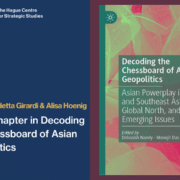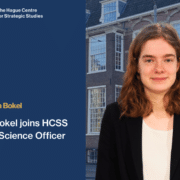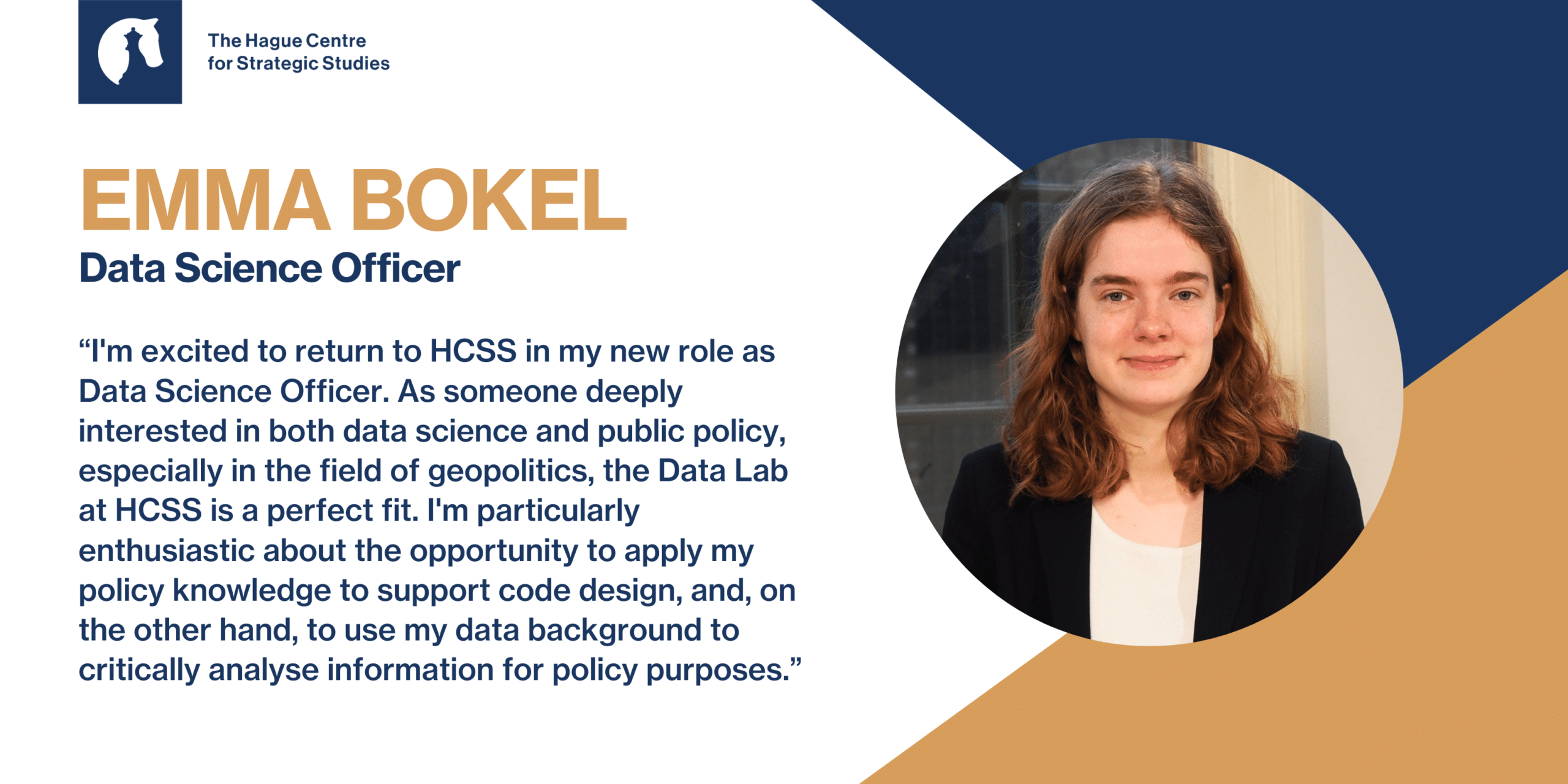Emma Genovesi on her typical day as a general intern, gaining practical experience and finding her perfect work environment at HCSS
Hi Emma, could you introduce yourself? Tell me where you are from, what your educational background is, if you had any prior work experience before your internship at HCSS?
Hi, my name is Emma, and I have been living in The Hague, and more generally, the Netherlands, since September 2024. However, I was born in Assisi, Italy, and I grew up in Rome. I am half Italian and half American, and I have lived and studied in both countries. I went to an all-girls boarding school in Massachusetts, where I developed an interest in law and history. Once I graduated, I felt drawn back to Europe and the European sense of citizenship, which aligned with my view of, well, to put it bluntly, living.
For my bachelor’s studies, I started off doing Political Science and International Relations at the University of Bologna, and then proceeded to do my Master’s in International Relations and Diplomacy, focusing on International Security Policy. During my Master’s, I had two Erasmus experiences: the first at KU Leuven and the second in Brussels.
KU Leuven truly had an impact on me, from my professors to my classes to my awesome housemates. It’s quite impressive how one experience can change the course of your future plans. Speaking to friends and professors, I found an internship for my second Erasmus experience in Brussels. However, as sometimes happens, the internship, which was on European projects, turned out to be not what I expected. Nonetheless, I truly took pleasure in my work there, from drafting white papers to attending EU Hydrogen meetings for future projects.
During this time, I chose to focus on the field in which I had conducted my studies, international relations, and, because of the increased relevance of cyberspace within IR, which was reflected in my internship work, I decided to narrow my field by attending the Cyber Security and Governance program at Leiden University. Because I was looking for practical experience in my field, I decided to apply to HCSS, and so, long story short, here I am!
Can you describe your time as a general intern? What does your day-to-day look like?
My time as a general intern has been quite the whirlwind. I mean this in the most positive way possible—there is never a dull moment! Being a general intern at HCSS is quite unique, as you are immediately immersed in the world of research and writing, something that some internships differ on. Yes, you have kitchen duty, and yes, that means you get to choose the cookies for the cookie jar that week, but overall, you are able to take ownership and responsibility for your work. This truly blew me away when I first started. It did take a bit of getting used to, but it is quite a rewarding feeling.
To give you an example, my typical day ranges from conducting research on Chinese hybrid threats toward medium and small powers in Asia and Europe, to researching the Microsoft Capstone regarding NATO’s interoperability, to co-hosting the Southern Africa–Netherlands Cyber Security School (SANCS) lessons on Microsoft Teams. This last experience was particularly interesting, as I got to meet so many fascinating lecturers and sit in on their explanations of cybersecurity and beyond.
I must say, doing this internship alongside my studies has been a challenge, but the hours I spend in the office are invaluable. I truly recommend this as part of your studies, as you get to keep working on what you would do in the classroom, but in a practical, hands-on manner that has proven extremely useful for my development.
But my days are also so much more than just the work I do. I have lunches with my awesome mentor Laura Jasper, or with my colleagues on the terrace; chats with analysts about the U.S.’s current stance with NATO over the cookie jar in the pantry; and of course, coffee breaks with fellow interns. If I’m being honest, I was a bit worried about the 40-hour work week in the office when I first started, but I love coming into the office and being surrounded by such a great group of people!
So, what initially attracted you to the HCSS internship programme and why did you apply? How did you find out about HCSS?
As I mentioned, I was really looking for a work environment that aligned with my studies in security studies and cybersecurity. HCSS, as a strategic studies research centre and provider of the Southern Africa–Netherlands Cyber Security School (SANCS), really reconciled my past studies while also serving as a springboard for my future career through practical, hands-on engagement. Furthermore, looking through its publications, I got the strong impression that HCSS tackles a broad range of topics, from climate and energy to strategic technologies, which would offer plenty of opportunities to learn about subjects I hadn’t had the chance to explore during my studies. In the long run, this has turned out to be the most fulfilling aspect of my experience at HCSS: the variety of topics I get to work on, gaining practical experience and knowledge in areas I knew very little about at the beginning.
At the same time, I remember reading through previous intern testimonials and really feeling that HCSS was a welcoming environment. Knowing it was a full-time internship, I truly wanted to ensure that the people and the environment would be a good fit for me personally. Today, I can truly say that HCSS, its staff and its facility, is absolutely awesome. From the first day, everyone was extremely welcoming, introducing themselves and offering help when needed. From mentor lunches where you get to try out different local restaurants in the neighborhood, to outings with colleagues, working at HCSS is fun and comfortable, which is incredibly valuable when you’re balancing university work alongside the internship.
Therefore, I am very thankful to have found out about HCSS through my friend and to have applied—this has turned out to be the perfect fit for me, and I hope it will be for you as well!
What advice would you have for future interns that are thinking of applying?
Genuinely, be yourself. I think this is probably the most overstated but hardest advice to follow. Before starting my internship I think I was quite in my head about expectations and how to perform which are normal feelings when you are feeling excited and a bit anxious to start working in a new environment. However, if there is one thing I truly have valued at HCSS is the space you are able to create for yourself and be who you are both in how you express your work and how you express yourself.
HCSS is an amazing environment, and the best way to connect with such vibrant, passionate people is through authenticity. Speak up when you’re interested in a subject, when you have doubts, or when you need help from a fellow intern or analyst. Your voice is always valued. In addition, being yourself in your work is fundamental. It’s what allows you to think critically, explore creative solutions, and contribute meaningfully to original research. In addition, it’s a lot more fun to work with people when you feel at ease and accepted for who you are, so seriously, be yourself and have fun!
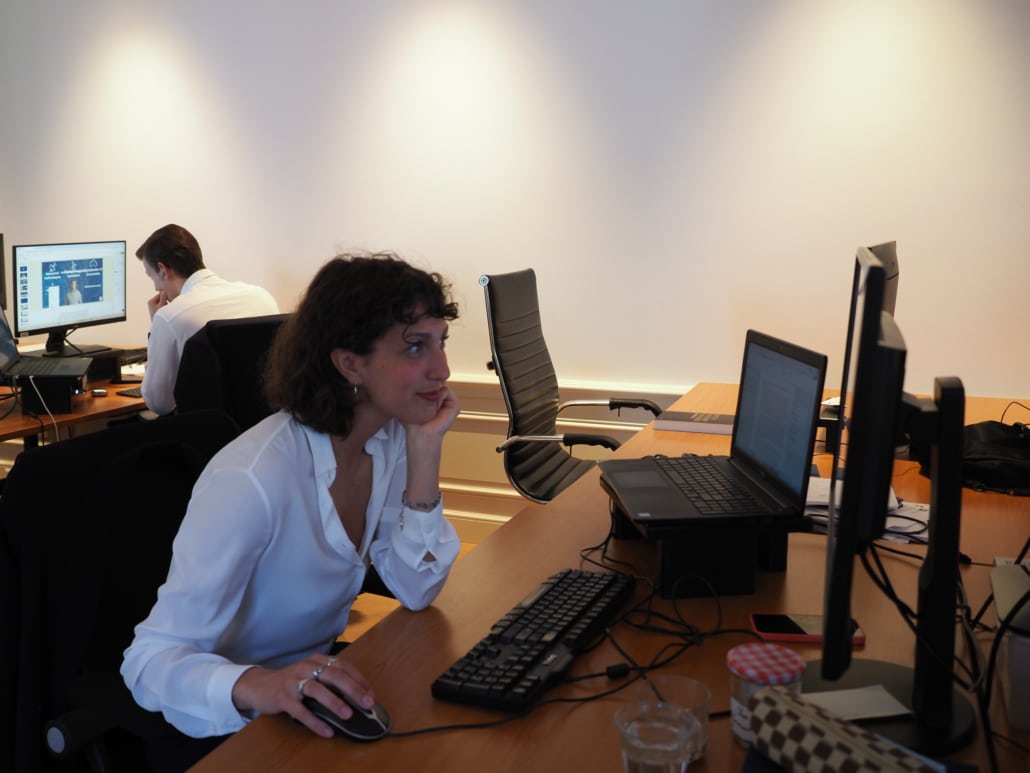
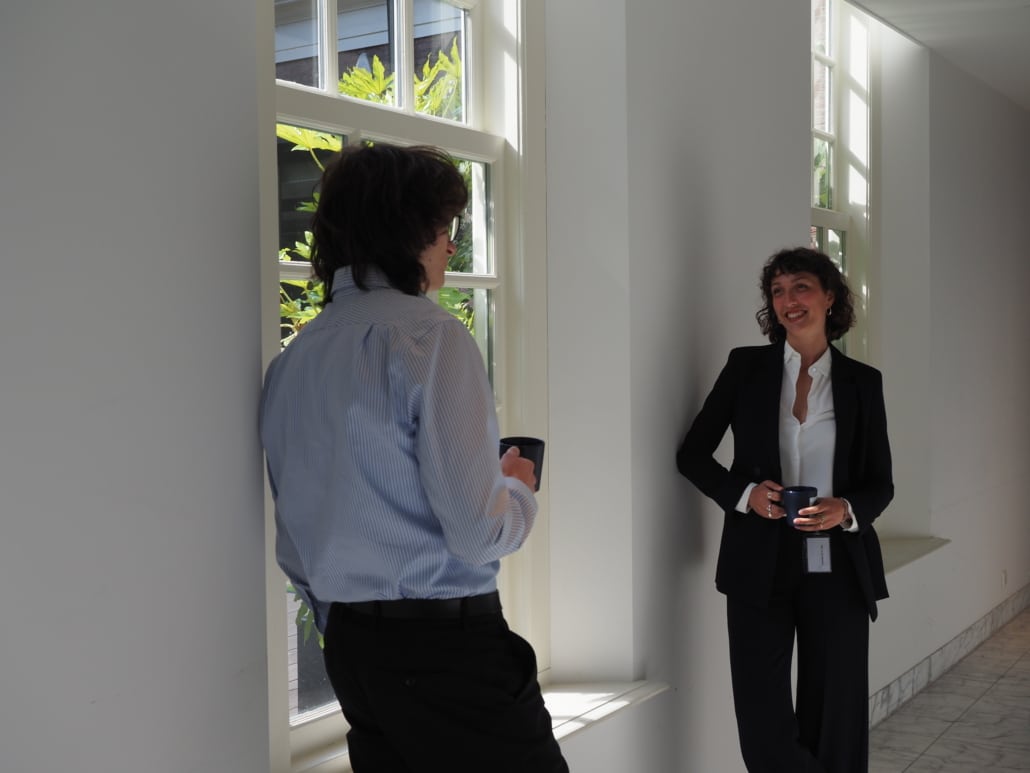
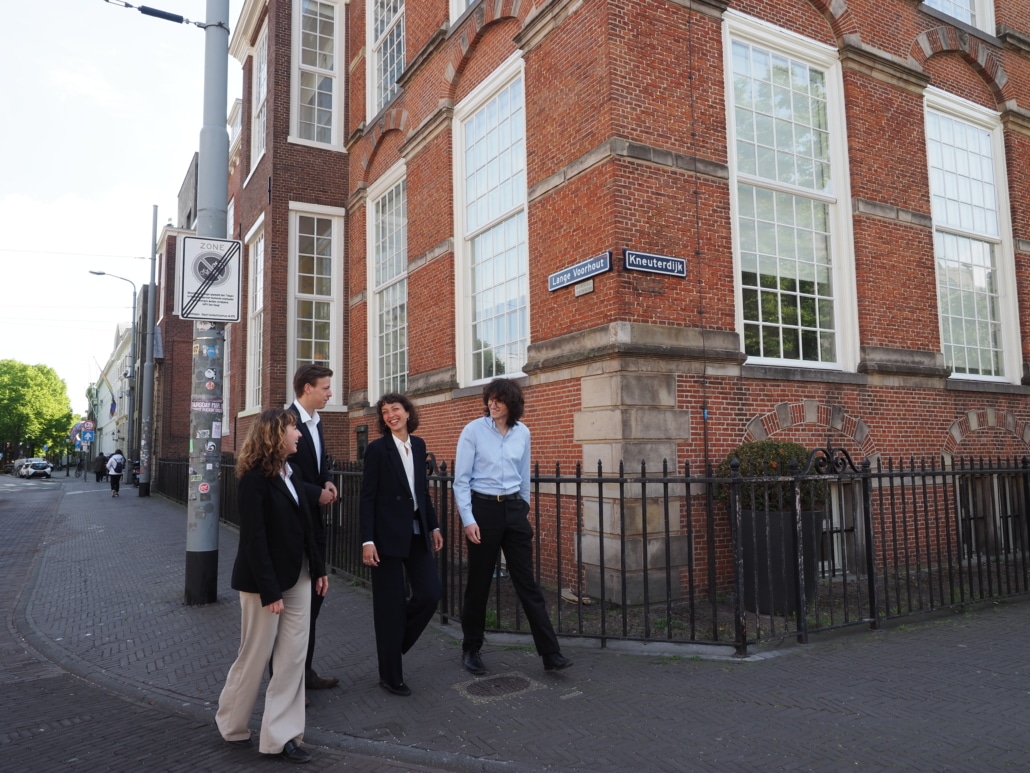
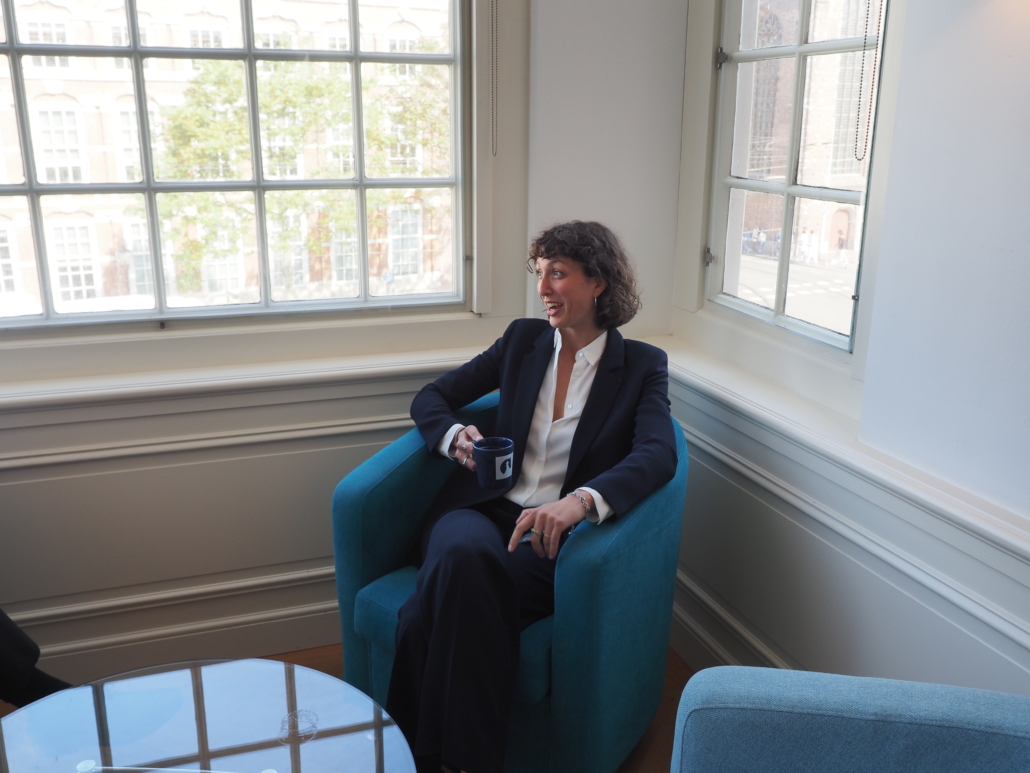
This interview was conducted by HCSS Communications & Events Officer, Stephanie Govaerts

